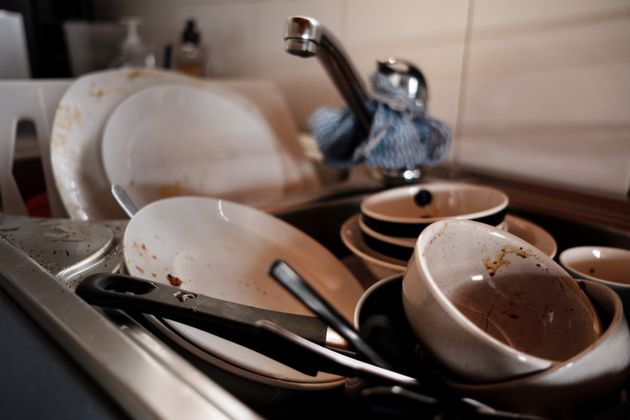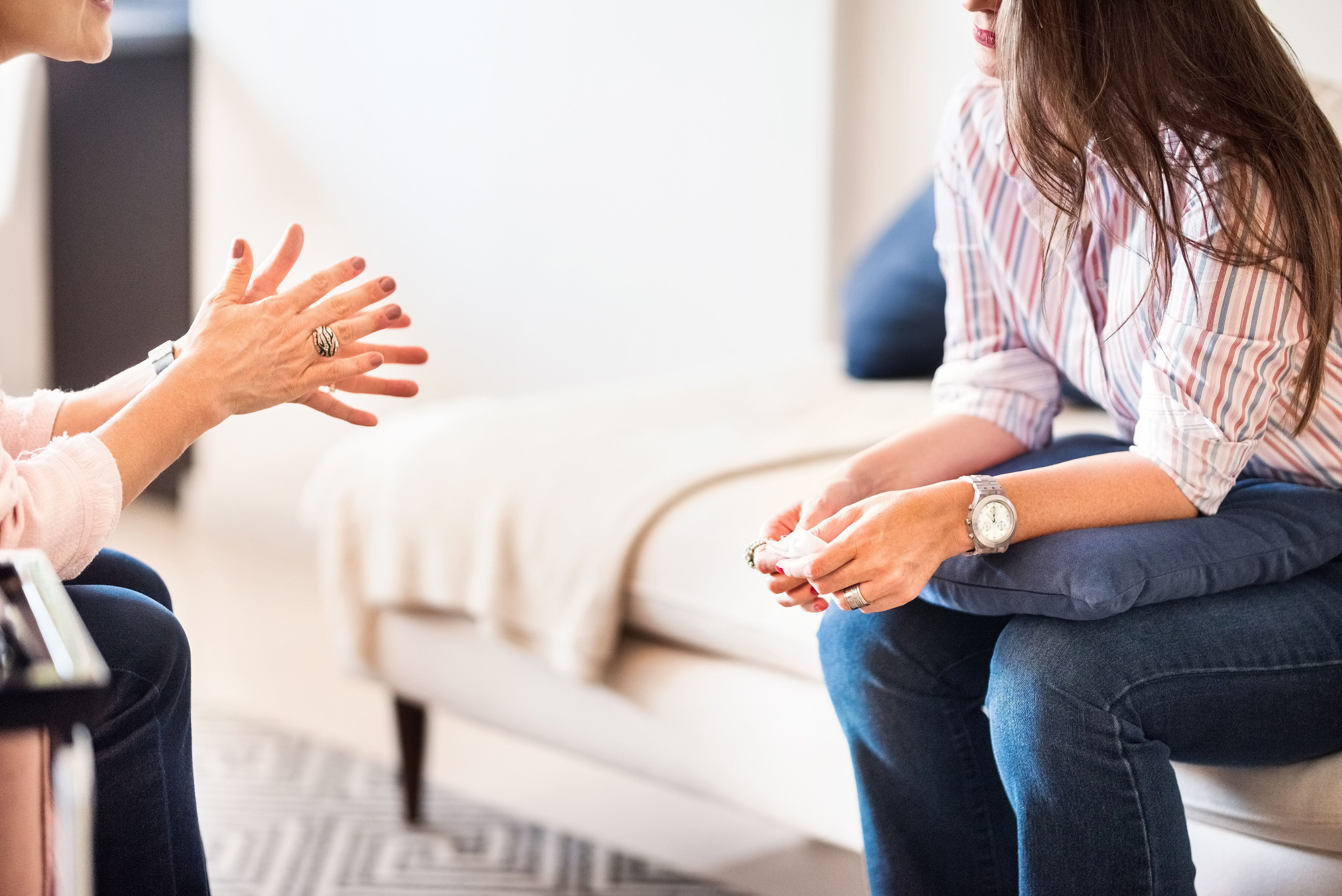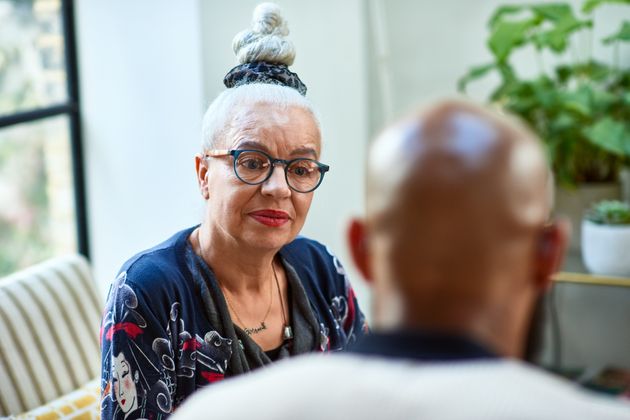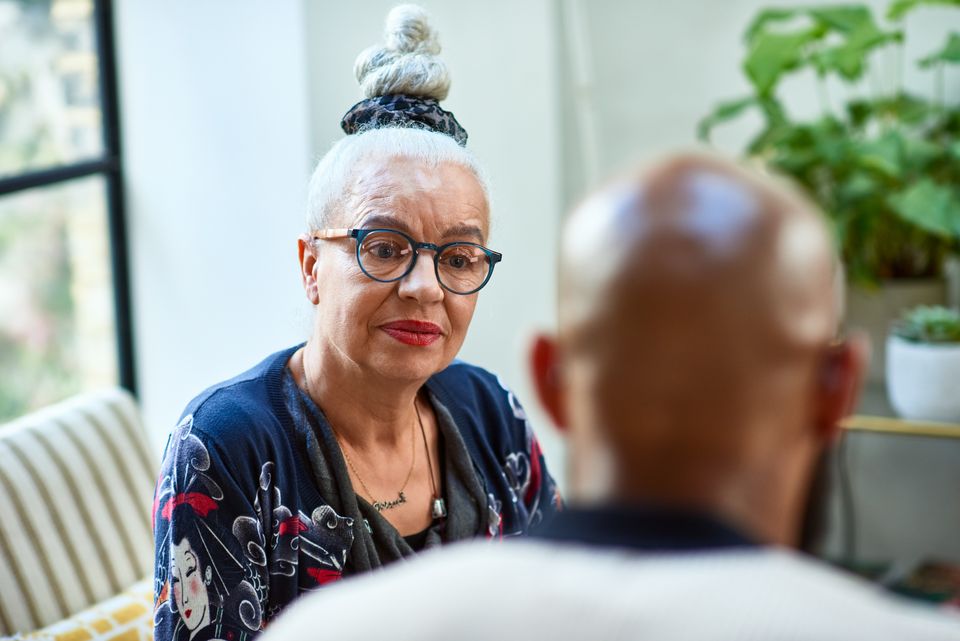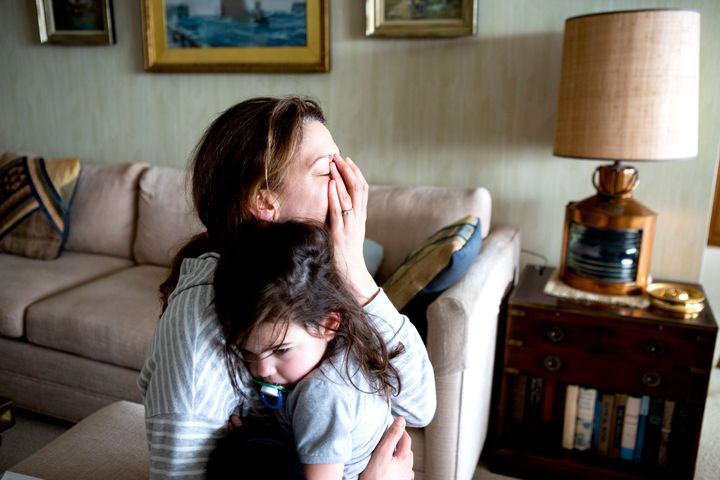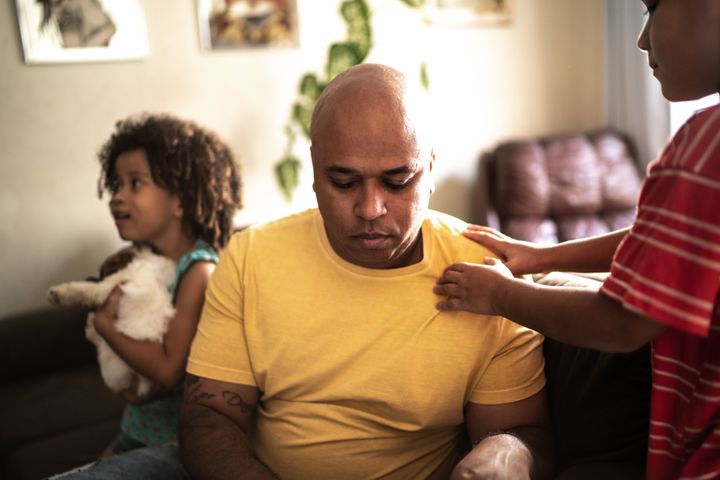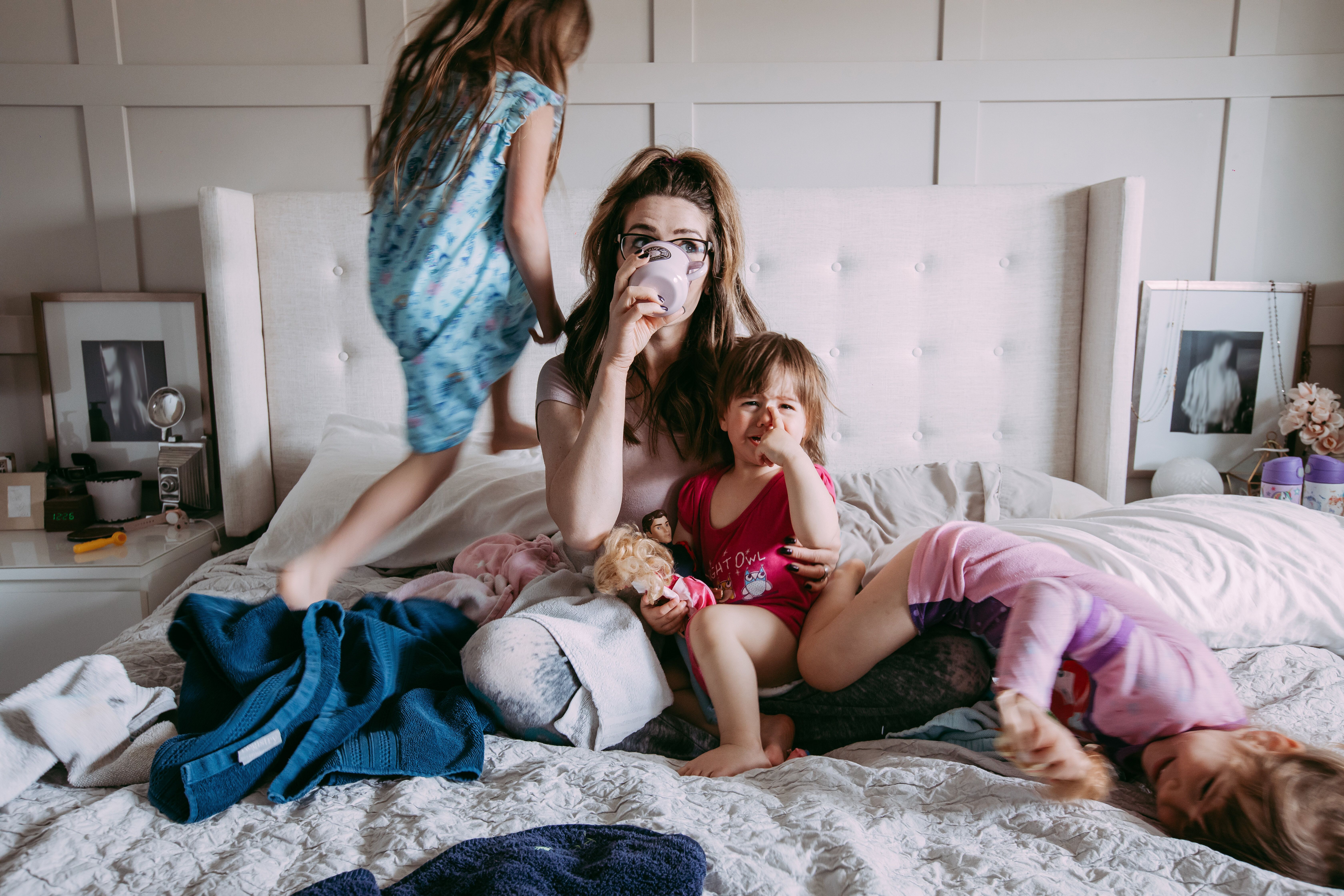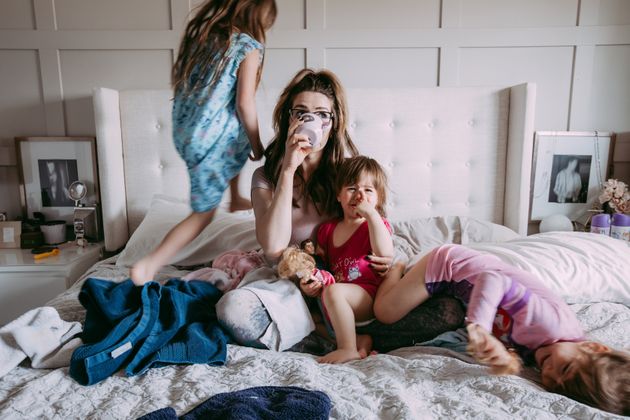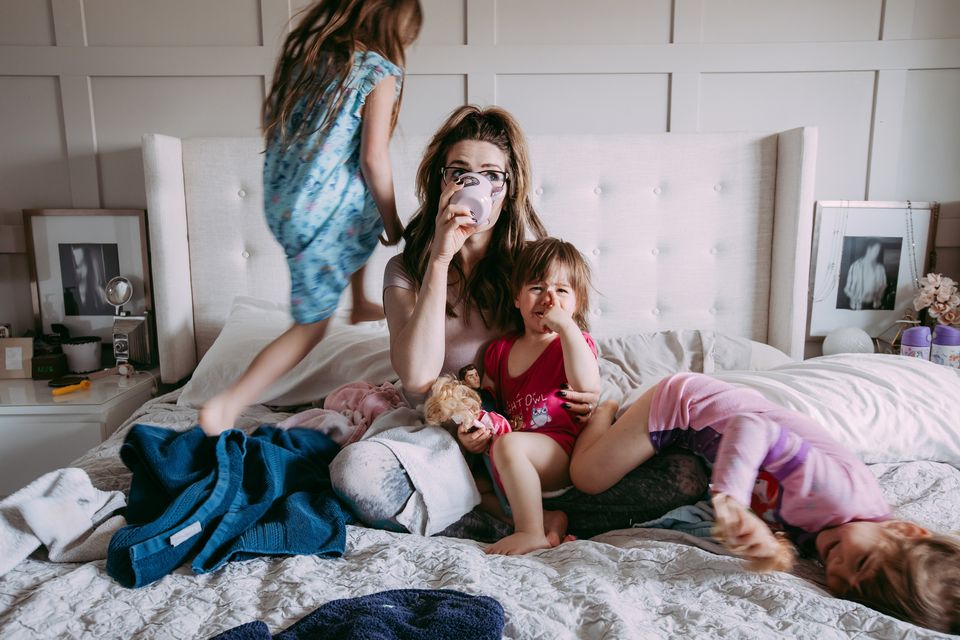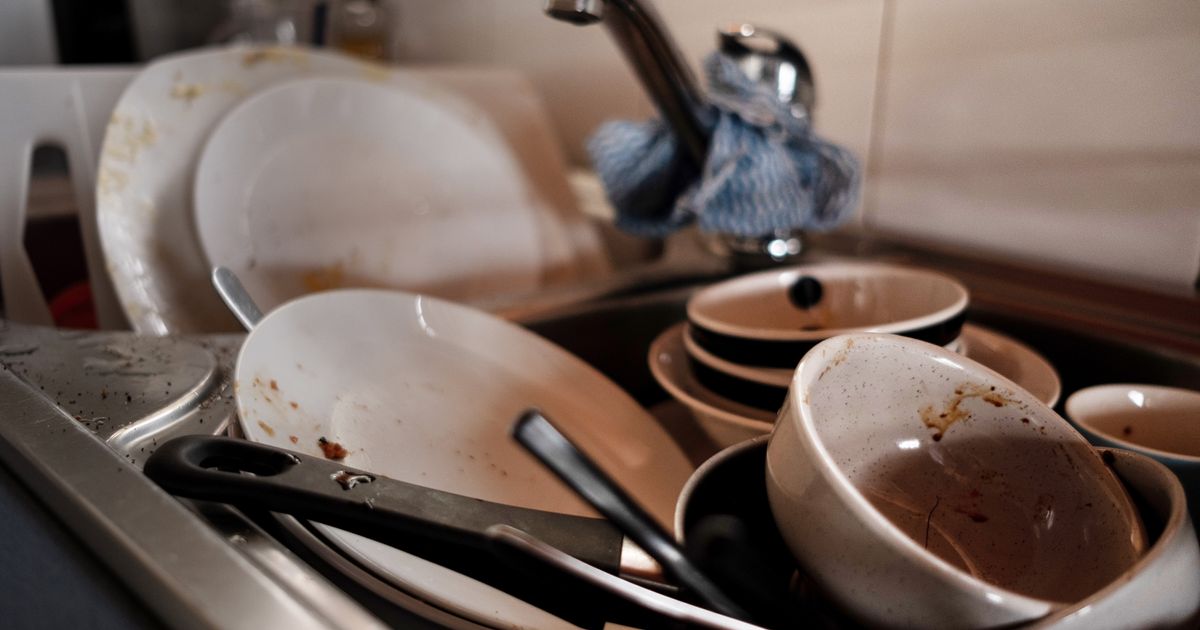
You’re reading Between Us, a place for parents to offload and share their tricky parenting dilemmas. Share your parenting dilemma here and we’ll seek advice from experts.
With the cost of living crisis, rocketing bills, and soaring rent payments, a growing number of adult children – dubbed ‘boomerang kids’ – are moving back in with their parents.
Advertisement
In fact, as of 2021, there were 620,000 more adult children living with their parents compared to 10 years previous, census data found.
While lots of parents will enjoy the chance to spend more time with their grown-up children, having them move back in can also cause tension and rifts.
Such is the case for one anonymous HuffPost UK reader, who shared their parenting dilemma with us:
“Our adult son has moved home for the second time, and I desperately want him to move out. He came home after a highly toxic relationship breakdown during which time he had wiped out all of his savings. He reluctantly came home at my insistence, and said it would only be for 2-3 weeks, but never left, and never asked us if he could stay permanently.
“As such the ‘ground rules’ conversations never took place, although we’ve tried to have them several times since with no impact or improvement. Since moving home seven months ago, he has not changed his sheets, washed his towels, he’s doing nothing to improve his job prospects in order to earn a consistent living wage that would allow him to move out, he’s not doing what we suggest to save money to clear his debts quicker. He doesn’t routinely help out around the home – he’ll clean his own plate but won’t unload the dishwasher, for example. He’ll remove his clothes from the washing line but leave everything else in the rain.
“He pays us ‘rent’ weekly which is now consistent, but resents it. This is about a third of what it would cost him to live in a house-share where we live. We have tried to address all of the above issues many times, but nothing changes. I feel we have no choice but to ask him to leave, but I fear making him homeless.”
So, what can they do?
1. Sit down and talk
While the situation is clearly hard for the parent, therapists recommend they take a step back and consider that their son is probably struggling quite a bit at the moment, too.
“Are these current behaviours new, or are they out of character? I would want to know more about how your family have communicated in the past – do things get heated?” asks Counselling Directory member Octavia Landy.
She recommends setting a specific time for a family meeting and, in the first instance, talking with the son about what is happening for him. The parent needs to find out: how is he? Is he struggling at the moment? What would he like to happen in his life?
During this conversation, the parent can also talk to their son about how it feels for them when he is not pulling his weight, and how it’s impacting the rest of the family, she suggests.
This isn’t a finger-pointing exercise, so at the same time the parent can remind their son that they care – this could be as simple as asking him what he needs or figuring out how the family can work towards this goal together. Empathy is key.
Advertisement
“It sounds like he is feeling lost and needs to make some changes, perhaps he feels overwhelmed,” adds the therapist.
2. Be prepared to listen calmly
When things get heated – which they can in these scenarios – it can be easy to just storm off and not really hear each other out. But every effort needs to be made, on both sides, to properly listen.
“As the parents, you will need to model consistency and keep calm,” suggests Landy.
“Bring the conversation back to the matter at hand, reiterate what you need to change, but also listen to your son. It sounds like there is something deeper happening for him, and by connecting on a new level, you can support each other and work together.”
3. Set clear boundaries
“Boundaries and communication lie at the heart of this dilemma,” says counsellor Georgina Sturmer, addressing the parent directly.
“At the moment, it feels as if the lack of boundaries is leading to a sense of anger and resentment on your part. It sounds like it might be time for you to communicate more effectively, ‘adult to adult’, about how you want your relationship to be.”
Advertisement
The Counselling Directory member also suggests a bit of self-reflection on how the relationship with the son has changed since he became an adult.
“Consider what your boundaries look like,” adds Sturmer. “How do you communicate with him about what constitutes acceptable behaviour?”
It’s also important to figure out where the partner stands on all this, because if there’s disagreement over how is best to handle the situation, it could fuel the son’s behaviour further.
As there wasn’t really a clear cut establishing of boundaries when the son moved back in, now is the time to lay down the law and sweep any uncertainty under the rug.
“Work together to establish ground rules and a timeline for these to be reviewed. It will be important to check in with him on how things are progressing,” adds Landy.
Advertisement
4. Ask yourself what you need to feel happy in your home
Sturmer suggests the parent should ask themselves what they need in order to be able to feel happy and safe in their home – and the answer might be a difficult one to come to terms with.
“It might be that this means that you need to ask him to leave,” she says. “If this triggers fears about him becoming homeless, then address these fears directly.
“Perhaps you can find a way to work together on a timeframe for him to leave home. Or if you don’t feel able to ask him to leave, start setting stricter ‘ground rules’, based on what you might expect from an adult living in your home.
“This can shift the dynamic from ‘parent to child’ to ‘adult to adult’. Even though he may always be your baby, remember that he is an adult, and he deserves to have an opportunity to be independent.”
Ultimately, communicating clearly, really listening to each other, and setting firm boundaries (and timelines) will be key in making all of this work.
Advertisement
Landy concludes: “Change needs to happen, and whilst that can be scary, by working together you can hopefully support your son to stand on his own again, without having to ask him to leave.”
Help and support:
- Mind, open Monday to Friday, 9am-6pm on 0300 123 3393.
- Samaritans offers a listening service which is open 24 hours a day, on 116 123 (UK and ROI – this number is FREE to call and will not appear on your phone bill).
- CALM (the Campaign Against Living Miserably) offer a helpline open 5pm-midnight, 365 days a year, on 0800 58 58 58, and a webchat service.
- The Mix is a free support service for people under 25. Call 0808 808 4994 or email help@themix.org.uk
- Rethink Mental Illness offers practical help through its advice line which can be reached on 0808 801 0525 (Monday to Friday 10am-4pm). More info can be found on rethink.org.

